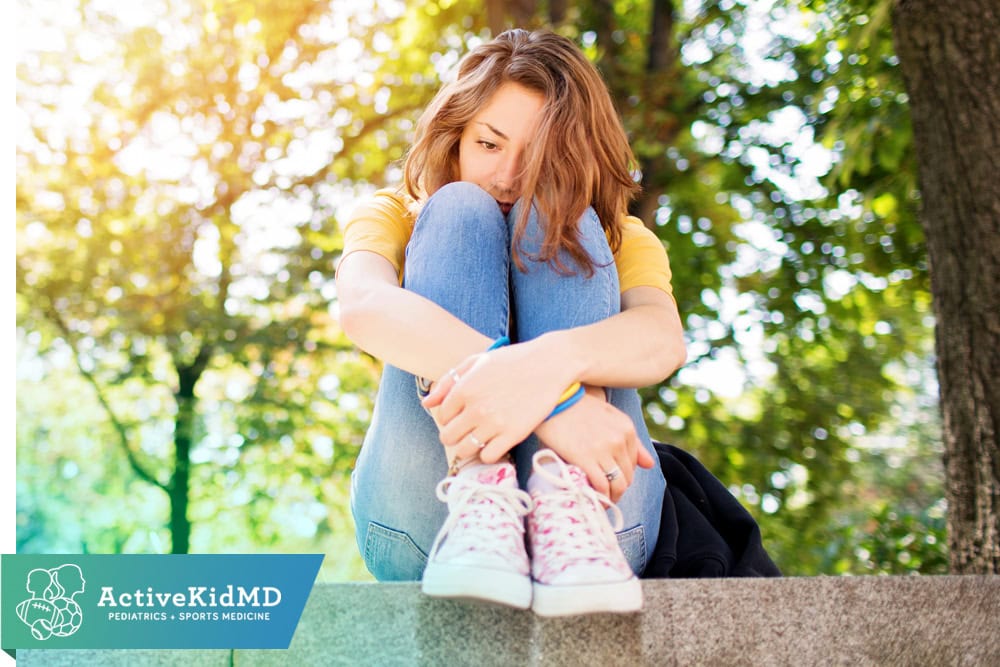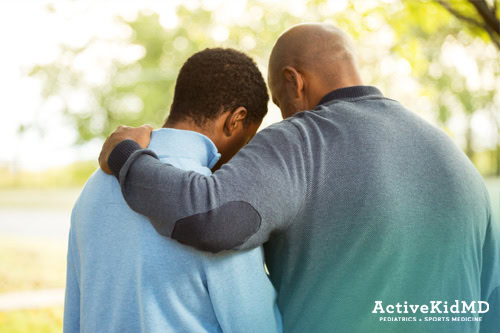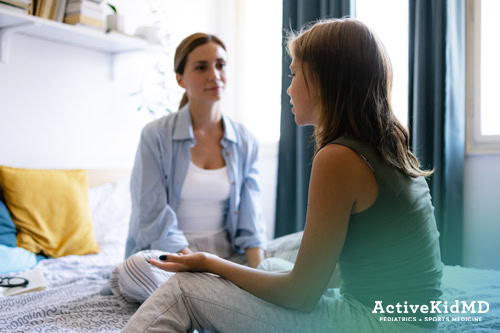Levels of depression and anxiety can increase at the end of a school year with state testing, studying for AP exams, or trying to complete regular workloads. Attention issues that might have been more manageable earlier in the year become more concerning as more advanced or complicated concepts get introduced later in the academic year.

Why Mental Health Matters
Mental health affects how youth learn, build relationships, and navigate challenges. When a child’s mental health suffers, it can impact their school performance, self-confidence, and even their physical health. Studies show that 1 in 5 children experience a mental health condition each year — and many do not receive the help they need.
What is Depression?
As your child’s pediatric care team, we encourage you to look out for the following warning signs:
- Feelings of sadness, tearfulness, emptiness or hopelessness
- Angry outbursts, irritability or frustration, even over small matters
- Loss of interest or pleasure in most or all normal activities
- Sleep disturbances, including sleeping too much or too little
- Tiredness and lack of energy, so even small tasks take extra effort
- Reduced appetite and weight loss or increased cravings for food and weight gain
- Anxiety, agitation or restlessness
- Slowed thinking, speaking or body movements
- Feelings of worthlessness or guilt, fixating on past failures or self-blame
- Trouble thinking, concentrating, making decisions and remembering things
- Frequent or recurrent thoughts of death, suicidal thoughts, suicide attempts or suicide
- Unexplained physical problems, such as back pain or headaches
- Withdrawal from friends, family, or activities
- Difficulty concentrating or a sudden drop in grades
What is Anxiety?
Again, according to Mayoclinic.org, people with anxiety disorders frequently have intense, excessive and persistent worry and fear about everyday situations. Often, anxiety disorders involve repeated episodes of sudden feelings of intense anxiety and fear or terror that reach a peak within minutes (panic attacks).
Symptoms of anxiety include:
- Feeling restless, wound-up, or on-edge
- Being easily fatigued
- Having difficulty concentrating; mind going blank
- Being irritable
- Having muscle tension
- Difficulty controlling feelings of worry
- Having sleep problems, such as difficulty falling or staying asleep, restlessness, or unsatisfying sleep
For more on anxiety/depression, see the ActiveKidMD YouTube video on mental/emotional health.
How We Can Help
At ActiveKidMD we take a whole-child approach to care. If you’re concerned about your child’s mental health, we can:
- Provide an initial screening during a wellness visit
- Offer referrals to trusted child therapists, psychologists, or counselors
- Partner with schools and specialists to ensure coordinated care
- Recommend tools and resources to help your child manage stress and build resilience
Supporting Mental Wellness at Home
Keep communication open — Encourage your child to talk about their feelings without fear of judgment.
- Maintain healthy routines — Regular sleep, balanced meals, and physical activity are foundational to emotional stability.
- Monitor screen time — Talk about social media use and help your child set healthy digital boundaries.
- Teach coping skills — Mindfulness, deep breathing, and journaling are simple yet powerful tools for managing stress.
Let’s Talk About It
There is no shame in mental health challenges. Just like a physical illness, emotional struggles deserve care and attention. If you have questions or concerns about your child’s behavior or mood, please don’t hesitate to reach out to us.
Dealing with depression or anxiety related to sports? See the ActiveKidMD blog “Dealing with Anxiety and Depression.”
We’re Here for You
Your child’s health is our top priority — mind and body. If you’d like to schedule a mental health screening or speak with our team, please call our office.
No one should ever be afraid to seek help.



 Keep communication open — Encourage your child to talk about their feelings without fear of judgment.
Keep communication open — Encourage your child to talk about their feelings without fear of judgment.